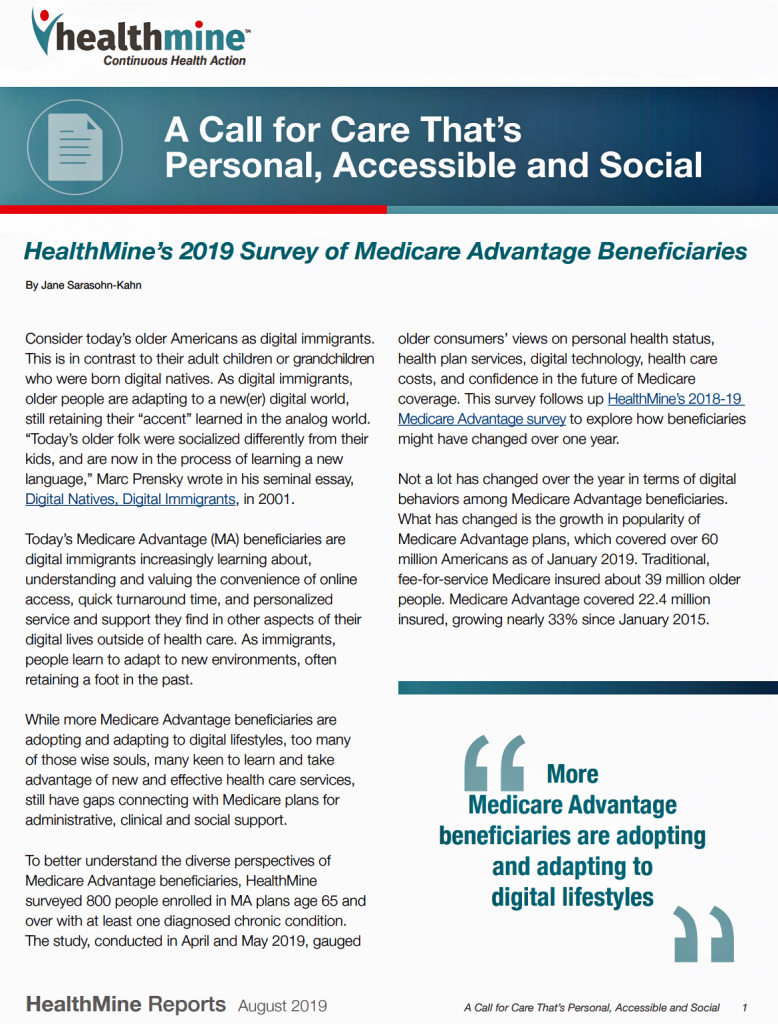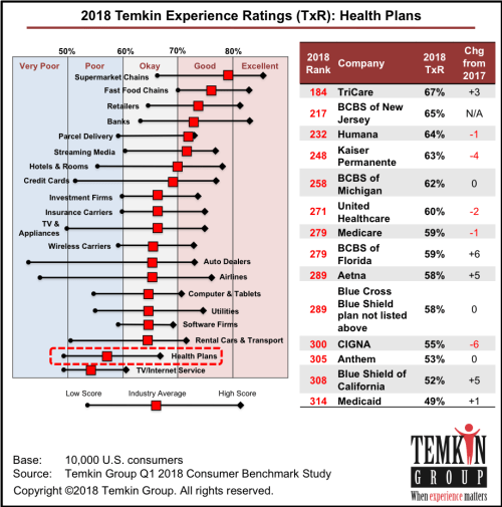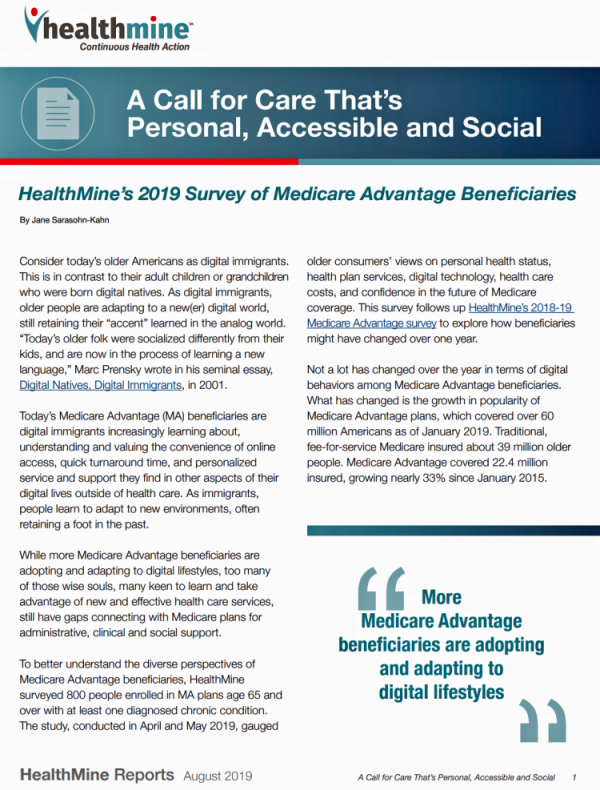As Boomers age, they’re adopting mobile and smart technology platforms that enable people to communicate with loved ones, manage retirement investment portfolios, ask Alexa to play Frank Sinatra’s greatest hits, and manage prescription refills from the local grocery store pharmacy.
Last week, the Giant Eagle grocery chain was the first pharmacy retailer to offer a new medication management skill via Alexa. That program has the potential to change our Medicare members manage meds at home to ensure better adherence, supporting better health outcomes and personal feelings of efficacy and control. [As an aside, consumers really value pharmacies embedded in grocery stores, which the latest J.D. Power survey on the subject attested].
 It’s that feeling that everyone wants, but especially people aging into Medicare and beyond….and one of the data points we learned in a survey on which I collaborated with HealthMine, the self-described “Health Action as a Service” company that works with health plans to support peoples’ self-care and financial decisions for their care. That study resulted in the paper, A Call for Care That’s Personal, Accessible and Social, which the company’s CMO, Nicole Althaus, and I will be discussing today at AHIP’s Consumer Experience and Digital Health Forum in Chicago.
It’s that feeling that everyone wants, but especially people aging into Medicare and beyond….and one of the data points we learned in a survey on which I collaborated with HealthMine, the self-described “Health Action as a Service” company that works with health plans to support peoples’ self-care and financial decisions for their care. That study resulted in the paper, A Call for Care That’s Personal, Accessible and Social, which the company’s CMO, Nicole Althaus, and I will be discussing today at AHIP’s Consumer Experience and Digital Health Forum in Chicago.
In my introduction to the survey, I wrote about “digital immigrants,” the other end of the continuum from “digital natives” — young people who were born over the past fifteen years into the digital era of personal computers, mobile phones and mobile-first. Digital immigrants, first coined by Marc Prensky in 2001. Those born before 1985 are generally considered as digital immigrants, so people aging into Medicare today are certainly in that cohort.
As older Americans age into Medicare, they’re already living lives of consumers…and since the Great Recession of 2008, three factors have been re-shaping consumers which I detail in my book, HealthConsuming: From Health Consumer to Health Citizen:
- Greater self-reliance through “DIY” in daily living, from home cooking and gardening to DIY home care and financial management
- Near-universal penetration of smartphones for every new phone replaced or adopted, translating into users having tiny powerful computers in their pockets or pocketbooks
- A new benchmark for customer service as people have become “Amazon-Primed” for what looks like good consumer experience — transparency of prices, clear options for choice, customer reviews, and fast and free shipping to feed our desire for instant (or pretty quick) gratification.
Each of these three forces is also reshaping us as health consumers — more self-care, more seeking information and support online for health care and wellness, and demand for better service in health care.
 At AHIP this week, it’s particularly important to call out the fact, confirmed in various and different-themed consumer market research, that health plans don’t deliver retail-levels of consumer experience, the theme of this conference. Whether we look at the Temkin Experience Ratings or a poll from Harvard Business Review, it’s clear that patients-as-consumers perceive the health care industries don’t deliver on the promise of customer service.
At AHIP this week, it’s particularly important to call out the fact, confirmed in various and different-themed consumer market research, that health plans don’t deliver retail-levels of consumer experience, the theme of this conference. Whether we look at the Temkin Experience Ratings or a poll from Harvard Business Review, it’s clear that patients-as-consumers perceive the health care industries don’t deliver on the promise of customer service.
This is a key pillar for patient/member satisfaction, as we learned in the HealthMine study — that people enrolled in Medicare Advantage who are managing at least one chronic condition want care that’s personalized, accessible and understandable, and even social.
So think about those Amazon-Primed lessons — self-care and empowerment, bolstering health literacy across many levels (digital, financial, clinical); technology based services designed for “me” and my values and goals for my own health/care (like the Alexa skill embedded into Giant Eagle pharmacy customers’ Amazon Echo); and, levels of service that make a patient-person feel like a respected member of their own care team.
If you’re at AHIP, come hear Nicole and me brainstorm the results of this study. If you can’t make it live to our session at 155 pm in the Montreux Room, 2nd floor, in the Swissotel — then check out our paper here.





 Thank you, Trey Rawles of @Optum, for including me on
Thank you, Trey Rawles of @Optum, for including me on  I was invited to be a Judge for the upcoming
I was invited to be a Judge for the upcoming  For the past 15 years,
For the past 15 years,